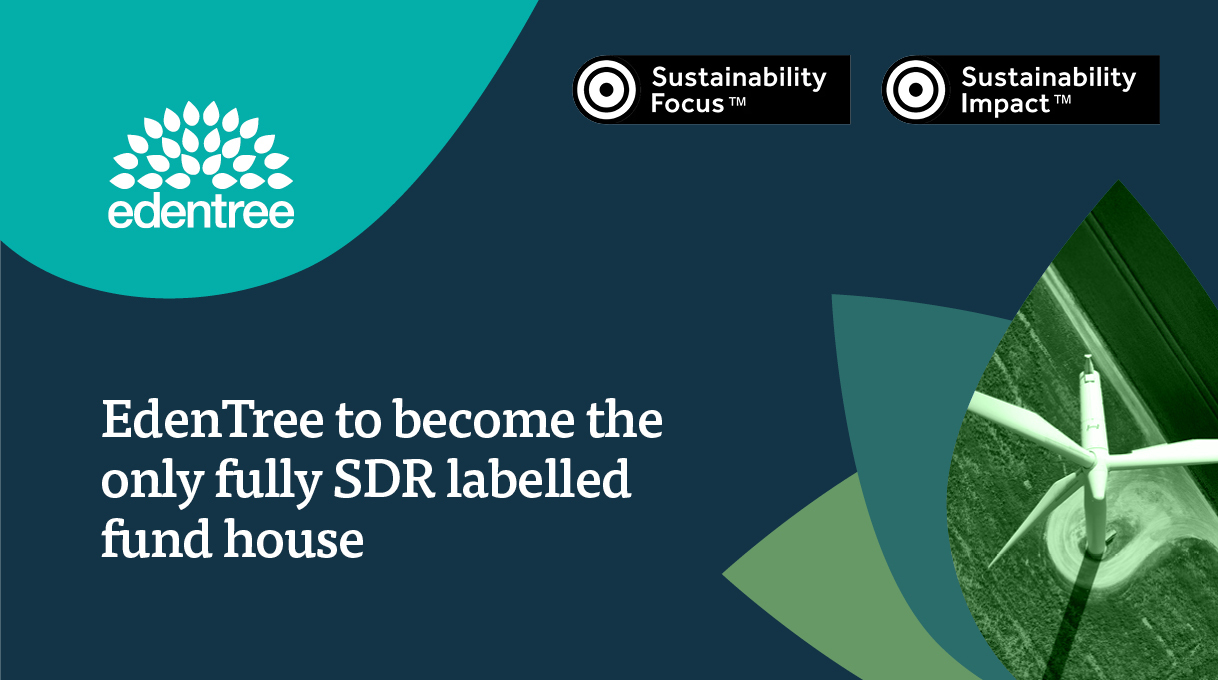The UK water sector is in crisis. With prominent companies buckling under tighter regulatory scrutiny, punitive fines and damaging credit downgrades, we view this is as the first major sector in which the dots between ESG risks and financial viability have been fully connected. This leaves the water sector at a crucial tipping point, writes David Katimbo-Mugwanya, Head of Fixed Income, Edentree Investment Management.
As long-standing specialist responsible and sustainable investors, the argument that investing in responsibly managed companies generates better returns over the long term is a familiar one.
This logic is undeniably sound – responsibly managed companies tend to have better risk management and regulatory compliance, with management teams appropriately aligned to overarching company goals. When corporates behave irresponsibly, neglect adverse externalities and or disregard societal values, the long-term financial performance is likely to suffer.
Once considered a niche approach, the integration of ESG risks is now well and truly mainstream. It is therefore apparent that companies hit by notable ESG scandals are less attractive to investors and have a smaller pool of investors from which they can draw capital. But these businesses have yet to run up against the kinds of penalties that have had an immediate and material impact on their cost of capital or the financial viability of the entire sector in which they operate. This has now begun to change.
A tipping point for the Water sector
The significant failings in wastewater management by several major UK water companies is badly shaking both public trust and investor confidence, prompting greater regulatory and financial scrutiny on the entire sector. At the end of July, Thames Water had its credit rating downgraded to “junk” status by S&P and Moody’s, putting it in breach of its licence conditions and pushing it closer to effective renationalisation.
Some companies have fared better than others. Those businesses whose management had committed appropriate capital to improving infrastructure and prioritised environmental preparedness via methods including catchment management have shown some resilience to recent news flow. But no one in the sector has been left entirely unscathed. Whereas investment grade credit spreads were largely flat over the last quarter, the Utility sub-sector*, including water companies, saw a 0.25% rise in risk premia as the Thames Water-specific news unfolded. Water has reached a crucial tipping point, where the financial materiality of ESG risks is much higher and investors bear significant consequences.
The true cost of negative externalities
At their heart, many of the financial issues currently facing the water companies can be attributed to the improper pricing of negative externalities - the unintended and adverse side effects of economic activities.
The pricing of environmental externalities can pose a particular challenge. Accurately measuring the extent of possible environmental damage and estimating the economic value of these impacts is at best an opaque process, with the free markets often failing to account for the true cost of environmental or social risks. This results in an under-pricing of harmful activities or impacts.
In the case of the water companies, pollution must be better assessed and accounted for to reflect the cost of incumbents’ associated negative environmental externalities more precisely. And yet, in no other sector have we seen the implicit cost of ESG risks crystallise so tangibly. Could we see manufacturers and heavy industry in hard-to-abate sectors financially penalised for pollution and hazardous waste to the extent that it threatens their viability? Might we reach a point at which consumer goods companies are sanctioned for poor labour practices and or complicity in human rights violations in their supply chains? We may well get there. Along the way, it is increasingly likely that more industries could face this same tipping point where ESG risk failures impinge on financial prospects.
Holistic investment approach involving engagement warranted
While it is the regulators who hold the stick, investor engagement has a crucial role to play. As responsible and sustainable investors, engagement with companies is one of the most important aspects of our work. We believe that catalysing change brings not only social and environmental benefits but is also a means for companies to preserve shareholder value. To that end, EdenTree have engaged extensively over the past few years with UK water sector companies on themes that were largely off the radar for most investors including river health, agriculture, retailers and wet wipe sales, nature-based solutions to name but a few. We found our investee companies highly receptive to this dialogue.
With much of the water sector now privatised, being a provider of public debt capital also puts EdenTree in a prime position to engage with the water companies. Indeed, we believe a clear line can be drawn between the level of ESG risk awareness seen in some of the publicly-owned water companies and those whose private equity owners have been less willing to provide the impetus nor support the necessary remedial capital expenditures.
As much as a better reflection of inherent risks is instructive, we also view it a zero-sum game if the sector were to become uninvestable or regulated out of existence. A such, a thriving water sector is in the best interests of all stakeholders.





